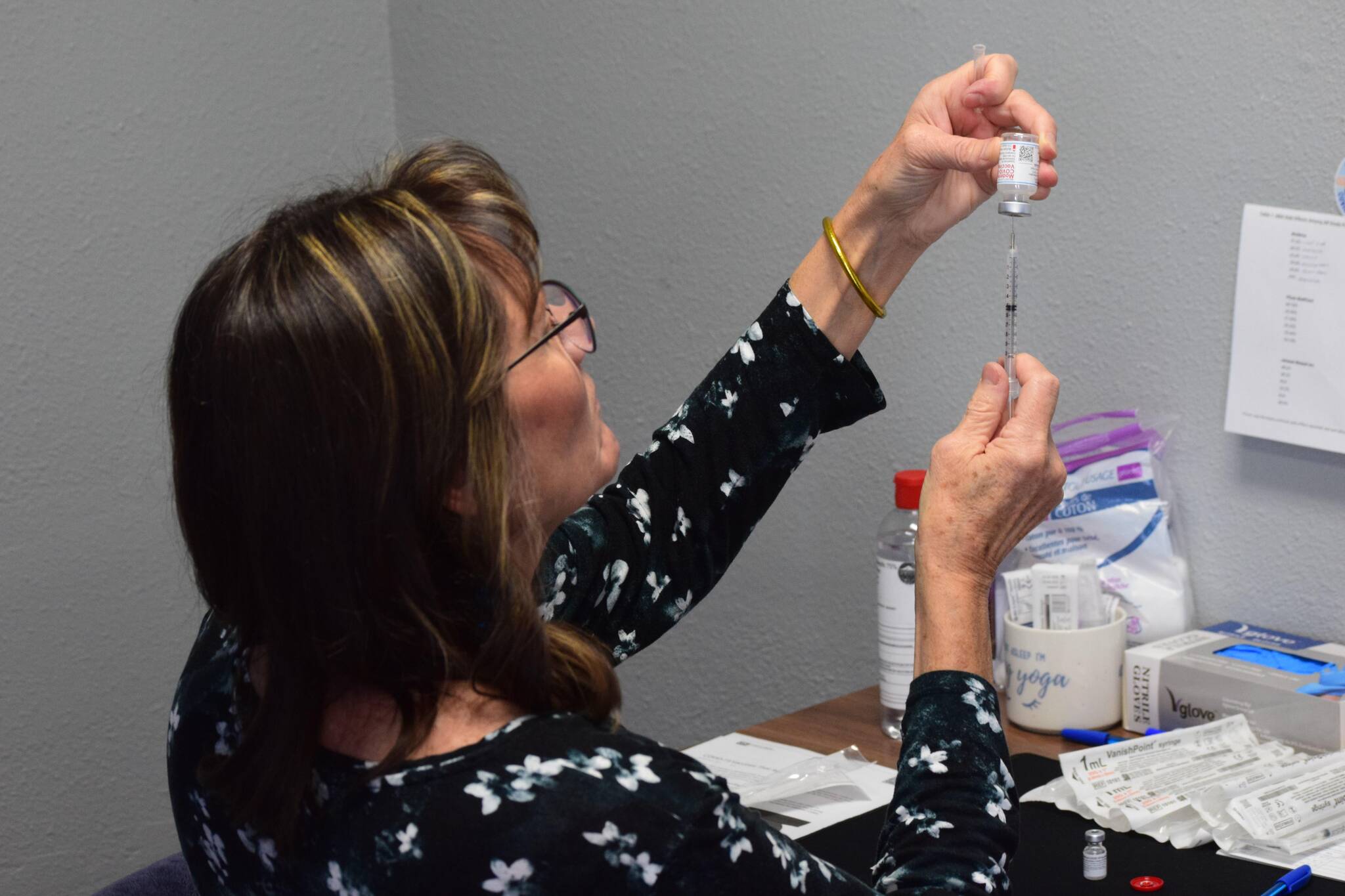In a Public Health ECHO held via Zoom and livestreamed to Facebook on Wednesday, state health officials gave updates on the status of COVID-19, influenza and respiratory syncytial virus in Alaska.
COVID-19
Dr. Joe McLaughlin, the state epidemiologist, said during the ECHO that COVID-19 hospitalizations and cases are continuing to see gradual decline, but that two new subvariants detected in other countries are on the national radar.
Declines in hospitalizations and cases are being seen both in Alaska and around the United States. Despite that, McLaughlin said, still more than 1,000 people die each week — last week 1,300.
“It’s still a lot of people who are dying from COVID,” he said. “It’s still circulating, still causing death.”
And while hospitalizations are declining and case numbers are decreasing, people are still being sent to the hospital by the virus, McLaughlin said.
Omicron subvariant XBB.1.5 has been the dominant strain for a few months, and McLaughlin said it still represents the majority of cases in the United States.
In India, a new omicron subvariant, XBB.1.16, has caused a sizable wave, he said. The subvariant has a transmission advantage, and is considered a “variant under monitoring” by the World Health Organization. It was represented in 7.2% of the cases tested nationwide last week.
The other new subvariant, XBC.1.6, was described by McLaughlin as a “recombination” of delta and omicron. It has not been detected in the United States yet, but has caused a wave of cases and hospitalizations in southern Australia.
On Wednesday, the Centers for Disease Control and Prevention made official their recommendation simplifying COVID-19 vaccinations, following Tuesday regulatory approval by the U.S. Food and Drug Administration.
According to a press release, new guidance allows anyone 65 years of age or older to receive an additional dose of the bivalent vaccine — anytime at least four months after their last dose.
The bivalent vaccine will be the only vaccine available in the United States moving forward, as the original monovalent vaccines will no longer be recommended for use in the country.
CDC guidance is now that everyone 6 years of age and older receive a bivalent vaccine, regardless of whether they’ve completed a primary series. Those who already have the bivalent vaccine “do not need to take any action.” Alternatives remain available for those who cannot or will not receive an mRNA vaccine.
State Immunization Program Manager Sarah Aho described the vaccine changes as “moving towards simplicity.” She said during the Wednesday ECHO that health officials anticipate the COVID vaccine shifting to an annual model like the flu vaccine, and that news to that effect will likely come this summer.
Dr. Coleman Cutchins said that the state is working to prepare websites with information about how COVID-19 testing, vaccines and other protective measures will change when the federal public health emergency ends — expected to be May 11.
Cutchins said that there will be no effect on the emergency use authorization for the vaccine. Insurance will still cover the vaccine, therapeutics and testing prescribed by medical professionals, but will no longer be required to cover at-home test kits.
Flu and RSV
Both influenza and RSV have been in decline in Alaska for a while. McLaughlin, in previous ECHOs, had said health officials predicted a second spike of influenza. He said this week that the spike never came.
“We really haven’t seen that influenza B wave that I think we were all really predicting,” he said Wednesday. “That’s great.”
For RSV, he said the disease has “almost bottomed out” in Alaska.
To learn more about the ECHOs or to view previous events, visit facebook.com/uaachdprojectecho.
Reach reporter Jake Dye at jacob.dye@peninsulaclarion.com.

